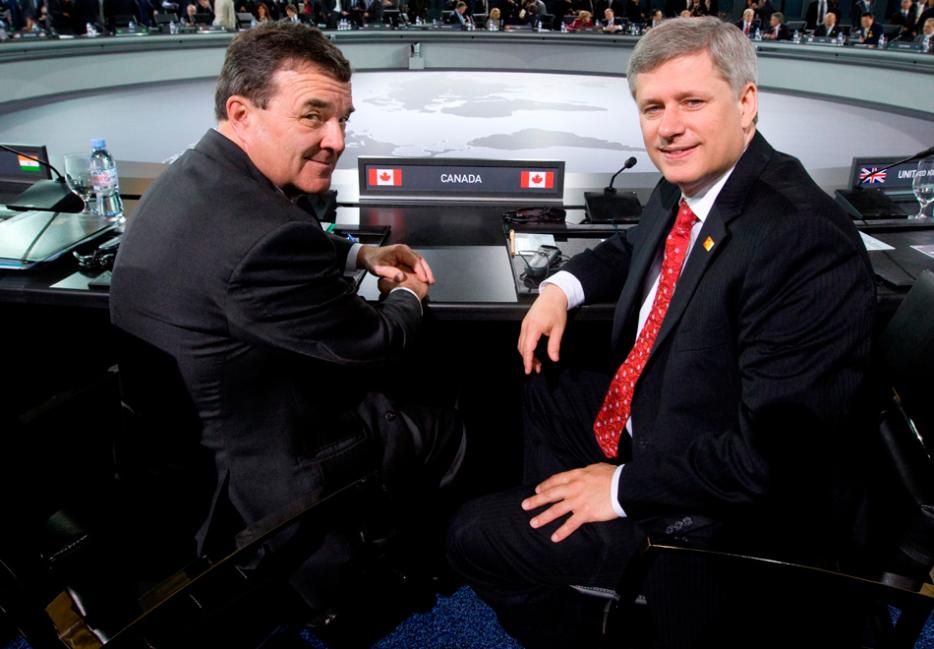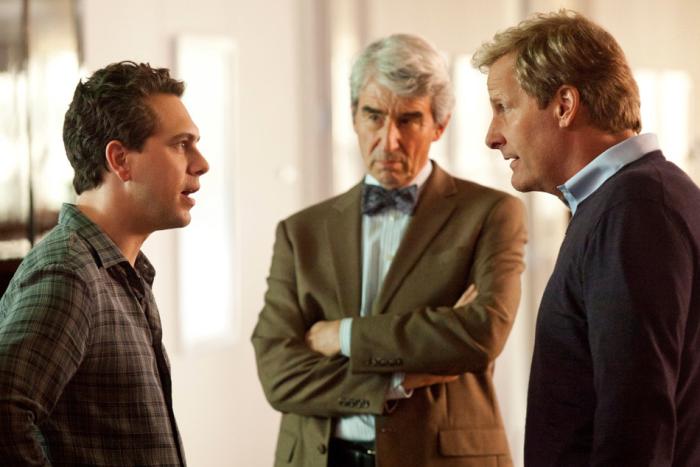Ottawa-watchers are anxiously speculating about a yet-to-be-announced cabinet shuffle expected this week, as Stephen Harper is expected to attempt a major reboot of his flagging franchise. The Conservative Party of Canada was never exactly a blockbuster hit—the 2011 majority in Parliament is not even one of the strongest in living memory—but every property could use some fresh blood every once in a while.
The problem with attempting a reboot in politics is that Stephen Harper’s trying to do it without changing the director. Or writer. Or producer. Or principal star. In short, he’s going to try and change everything about his party’s marquee except the one person who matters most—himself.
Oh sure, there might be some surprises. Harper could choose to replace Finance Minister Jim Flaherty, who has presented eight budgets for this prime minister and done passably well in that post. Flaherty has been suffering from some health problems, so he might even welcome the rest. But the Conservatives have notably avoided the kind of Chrétien-Martin acrimony between the PM and his right hand, so Flaherty’s departure (which is far from certain) wouldn’t even have any wider importance in Ottawa, after some nervous horses in the markets were calmed down by his replacement. And in any case, speculating about the details of a cabinet shuffle gets you nothing.
The more obvious problem for the Conservatives is their restive base asking what the point of winning elections is if you can’t do anything that a Conservative government is supposed to do. Worse then being muzzled on abortion (something the rest of the country seems to be able to live with) and having to read pre-written statements with all the enthusiasm of a North Korean POW is the last six months of scandal emanating from the Senate—and in particular, Mike Duffy.
The news last week from the RCMP investigation into Mike Duffy’s $90,000 in hush money (and that is indeed what the RCMP seem to allege it was) and that the party had considered paying for it but balked only when they realized the scale of Duffy’s expense abuse has got to make the Conservative army of small donors consider hanging on to their wallets the next time they get a mailer featuring Stephen Harper’s smiling mug on it.
The fact that it is overwhelmingly senators appointed by Stephen Harper that are now causing him problems is just a bonus point, scandal-wise.
The scandal and the botched attempt to shut it down come from the same place as the obsessive message discipline forced on even the lowliest backbench MP: do anything and everything to win, where “winning” means “beating the Liberals.” Which was, of course, exactly what Stephen Harper promised when he was made leader. Lock up the crazy remnants of the Reform party in a dark closet and make sure there’s a hole for them to breathe, while otherwise presenting the story to Central Canada that a new leader meant a more moderate, calm (and did we mention electable?) conservative party.
Ten years after the formation of the Conservative Party of Canada, their one and so far only leader has delivered on his promise: the Liberal hegemony of the nineties is utterly broken, and by the next election the Conservatives will have been in power for almost a decade. On top of that, it’s still an open question as to whether Justin Trudeau can put his father’s party back together or, with a bantam NDP on his heels, fight for the same split vote the Liberals have been pecking at since Paul Martin started the party’s decline.
If there are any actual problems in the Conservative base, it’s because some of them nursed the hope through those long, dark years of minority government that once the Liberals were finally broken, the real work of the movement could begin—dismantling the CBC, reopening abortion restrictions in Canadian law, the whole list of western right-wing grievances. There’s been some stuff at the margins (the long gun registry, the Canadian Wheat Board), but nothing to spook the party’s “left” flank into bolting back for its other home, the Liberals.
The realization that has to be dawning on them by now was entirely predictable as early as 2004: it’s Stephen Harper’s party, and he’s interested in winning elections for their own sake (because it means keeping Liberals out of power), not to wage a campaign against abortion or same sex marriage. Barring the wildest of wild cards—his own resignation—no cabinet shuffle is going to change that.






